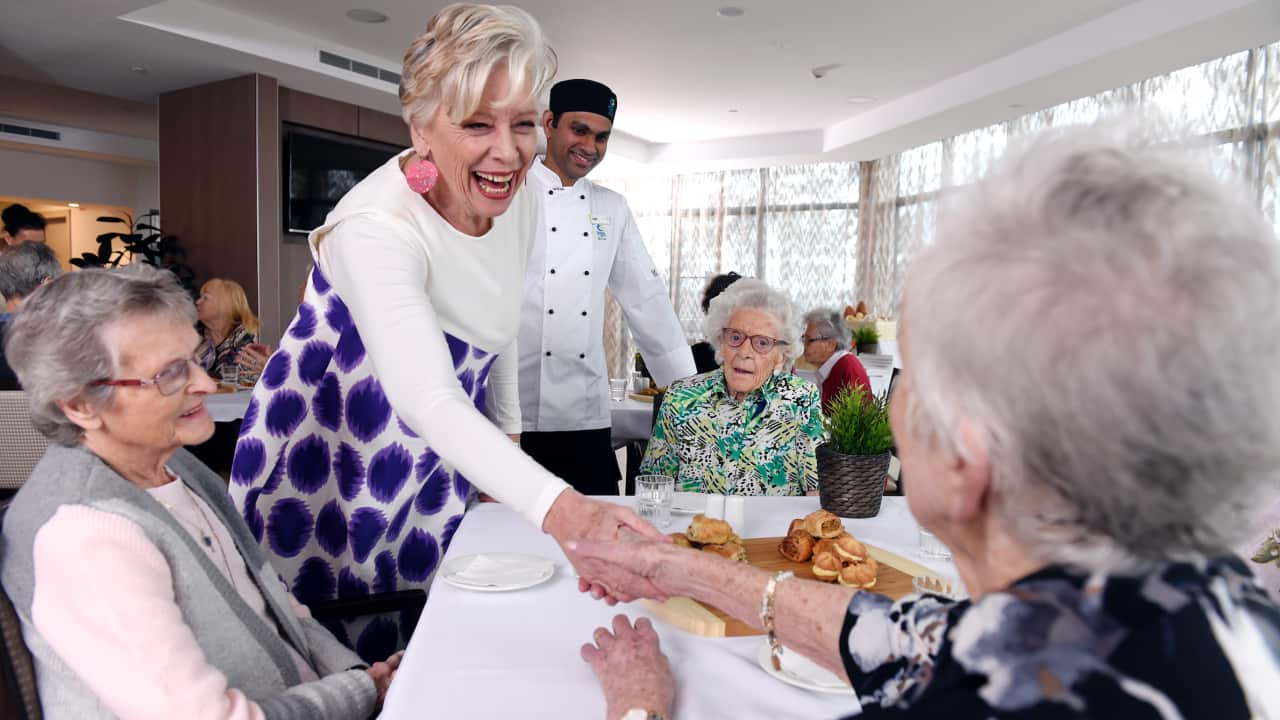Much-loved SBS television cook and 2010 Senior Australian of The Year, Maggie Beer has spent almost a decade campaigning for better nutritional standards in aged care and the provision of high-quality meals that are also a pleasure to eat. Now, the fruits of her work are paying off.
This month, Aged Care Minister Ken Wyatt issued a $500,000 grant to and partners and to create online training for aged care cooks and chefs nationwide.
The online training dedicated to aged care cooks and chefs is the first of its kind in Australia.
Food is nutrition not just for the body, but also for the soul. It’s what fires our appetite for life, no matter what age.
“The funding allows the foundation’s message and learnings to reach [chefs and cooks in] remote, Indigenous, home care, not-for-profit and other locations, where face-to-face training is not possible," Beer tells SBS. "Participants will be inspired, educated and given tools to make change within our 11 identified key aged care specific food modules.
“The participants then adapt these practices with the support of MBF’s online platform to the kitchens where they are serving our Australian elders.
“The result will be increased food consumption, energy and excitement around meal time.”
Why specific skills in aged care cooking are needed
The celebrated cook tells SBS the funding will raise the bar of food fed to older people living in aged care facilities and receiving home care, by providing sector specific training.
"The roles of cooks and chefs in aged care is extremely demanding and highly responsible," Beer tells SBS. "They are expected to have knowledge of the special needs of older people, their nutrition and special diets, the psychology of their social interaction, the institutional assessment and governance processes of the organisation and much more.
"Yet many of the cooks and chefs currently in aged care have no formal training in hospitality and are expected to learn on the job.
"There are currently no training courses available in Australia through the TAFE or specialist training providers to meet the needs of cooks and chefs. Therefore, MBF has designed this online training program into short manageable modules to fill this critical gap."
MBF has been running face-to-face training courses since its inception in 2014. Beer says when chefs and cooks finish the course and return to their aged care workplace, there are always dramatic changes in the engagement of staff and the wellbeing of the residents.
"Food is nutrition not just for the body, but also for the soul. It’s what fires our appetite for life, no matter what age. It should be everyone’s right to have good food and I believe that no one group of people need it more. My hope is that every meal can give comfort and pleasure, always something to look forward to."
Battling budgets and malnutrition
Some of the challenges of working in the aged care sector as a cook or chef were revealed in a 2018 Four Corners investigation into aged care. It found aged care facilities spend an average of
Accredited Practising Dietitian, believes MBF training could improve the delivery of food in the sector, and consequently, go some way to reducing the prevalence of malnutrition in aged care in the long-run.
“It has been estimated that up to 80 per cent of those residing in aged care facilities are malnourished or at risk of malnutrition,” says Feren, who has worked as a consulting dietitian in the aged care sector.
“It is incumbent on all of us to help curb these devastating statistics.”
Research on the malnutrition prevalence in aged care facilities, published in 2015 in the journal , shows that around 26 per cent of residents are moderately malnourished and seven per cent were severely malnourished. Over 40 per cent of residents receiving high-level care were malnourished.
According to the malnutrition rates in Australian aged care homes remain high with more than one in two residents malnourished.
"Inadequate nutrition in the elderly can increase their risk of mortality and morbidity, impair wound healing, negatively impact immunity and lead to falls and fractures," he says.
“Initiatives that help service providers be better equipped to meet the nutritional requirements of our elderly is a step in the right direction.”






